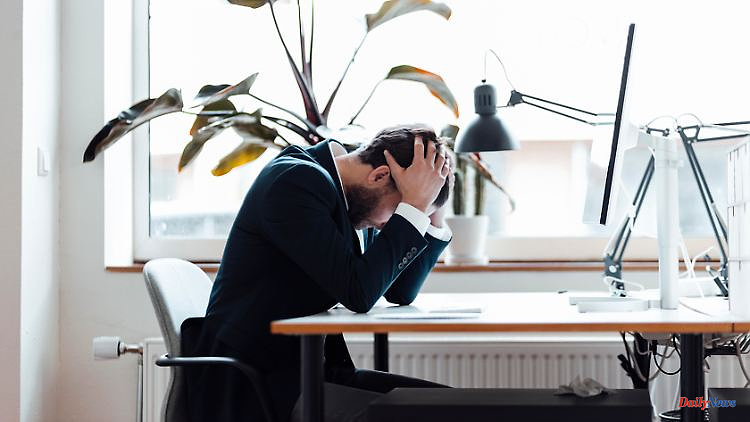Corona and the Ukraine war are obviously affecting many people. Absences from work due to mental illness are increasing significantly. Women are affected more often, but the increase is particularly high in men.
The effects of crises such as the corona pandemic and the war in Ukraine on the psyche of working people are clearly visible in the statistics: the commercial health insurance company (KKH) recorded a 16 percent increase in sick leave and absences due to mental illness in 2022. Depression, chronic exhaustion or anxiety disorders continue to occur more frequently in women, but the number of days absent has increased particularly sharply in men.
According to the KKH, by far the most common were various forms of depression. The most common diagnosis was "depressive episodes," closely followed by "depressive reactions to severe stress and adjustment disorders." Third place was "recurrent depression". In addition, chronic exhaustion, anxiety disorders and so-called somatoform disorders, i.e. psychosomatic complaints such as abdominal pain or headaches without an organic cause, caused many days of absence, the KKH explained.
According to the information, the health insurance company recorded a noticeably greater increase in men than in women for all diagnoses. In the case of somatoform disorders, the gap was particularly wide: 6 percent more diagnoses were recorded for women and 22 percent for men. Overall, the proportion of men among those affected rose from 31 to 34 percent, while that of women fell from 69 to 66 percent.
KKH occupational psychologist Antje Judick sees a direct connection with the Corona crisis: For example, men in particular who were previously involved in club or team sports reduced their physical activity to a minimum during the pandemic. "The resulting lack of exercise and the lack of social exchange seem to have had a lasting negative effect on the psyche, i.e. on drive and motivation and the general mood," explained Judick.
In addition, there are the economic consequences of the Ukraine war, especially inflation. "Since men are often more concerned about their job prospects and the economic situation of their families than women, they may suffer particularly badly from existential fears," explained the KKH expert. Women, on the other hand, more often cite the balancing act between job, childcare and relatives in need of care as the cause of psychological stress. “This problem already existed before Corona, but it got worse during the pandemic,” explained the KKH.
"After years of the pandemic, which were characterized by constant stress and exhaustion, people are now groaning with rising food and energy costs," said Left Party leader Janine Wissler. Against this background, she criticized demands by employers' associations to increase the maximum working hours and the retirement age in view of the shortage of skilled workers. "With such advances, illness-related absences or mental illnesses due to overwork are inevitable," said Wissler. "Once again, the employers' associations act as architects of the burn-out generation."












